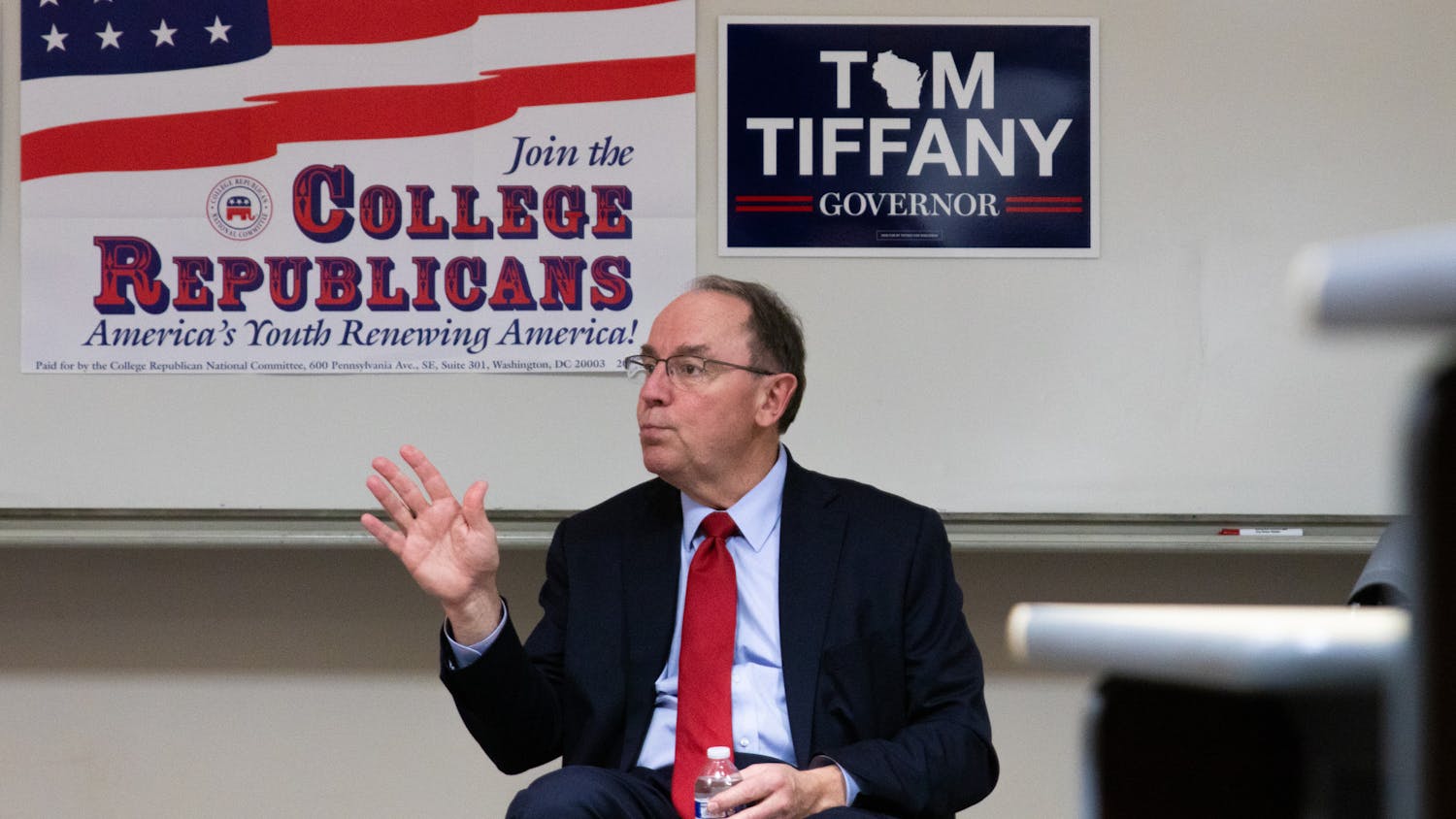Prepare for a media merger frenzy. Feb. 19, a federal court delivered a severe blow to free speech and a major victory to mammoth media corporations. The decision overturned a long-standing rule that prohibited a single company from owning both a broadcast station and a cable channel in the same city. Also, a Federal Communications Commission rule that prevents any company from owning more than 35 percent of the national TV audience was put into serious question.
Bush and his FCC appointee, Michael Powell, were not too disappointed by the federal court's ruling. The Bush administration has pushed for further weakening public oversight of media monopolies. He has proposed to shift the management of media and cable mergers from the Federal Trade Commission to the Department of Justice, which would be more sympathetic to media land-grabs.
A coalition of media advocacy organizations recently sent a letter to the FCC outlining their concerns about the Bush proposal: \Hundreds of newspapers would quickly merge with TV stations and, by the time the dust settles, the number of independent owners of major local news media would be slashed by almost one half."" As giant corporations buy up local media, community ties and journalistic standards are broken.
The economic pressures of cross-ownership will turn newspapers from ""watchdogs into lapdogs, unable to report on or criticize affiliated TV media,"" states the Center for Digital Democracy. The erosion of opportunities for critical journalists, particularly if they investigate criminal corporations, will give media oligopolies the power to control information and shape public opinion.
Media cross-ownership ceases to fulfill a basic constitutional requirement. Freedom of speech, as defined by the Supreme Court in 1945, must include the ""widest possible dissemination of information from diverse and antagonistic sources which is essential for the welfare of the people.""
""Industry commentators confuse variety with real diversity from independently-owned sources,"" states the letter to the FCC.
Clear Channel Communications Corporation has done to radio what AOL-Time Warner, Viacom and NBC have done to TV. Clear Channel now owns over 1,200 radio stations on which it churns out sensationalist trash for mega profits. In Wheeling, Va., a Clear Channel shock jock aired a live broadcast of a steer's execution. Similar incidents happened in separate stations across the country when Clear Channel shock jocks fed a rabbit to a snake, dropped a chicken from a third-story window and castrated an unanesthetized pig.
John Nichols and Bob McChesney explain in their book, ""It's the Media Stupid,"" why ""gross-out"" fare is commonplace in corporate media: ""Commercial pressures greatly undermine the overall quality of the system and skew it in ways that are not at all the result of audience demand. In the world of corporate media, the key is to attract the preferred target audience while spending as little money as possible.""
Increased corporate media consolidation is a sign of a sick democracy. A critical media is a guardian of the public interest. Companies are robbing airtime and radio from independent nonprofit communities, and these monopolistic practices shut out public access to the airwaves. Commercial radio runs corporate advertisements, while local public radio serves as a voice for people who want to provide community commentary and air time for local artists. Without community-run radio, people can expect to see more of the same corporate gimmicks and ads designed to make the audience think buying is cool.
The corporate monopoly over culture distorts community interests for commercial interests. Corporate radio isn't concerned with enhancing community dialogue or promoting nonmainstream artists. Selling is their motive and it is leaving the public in the role of consumer spectators'not informed citizens. Such trends will render it likely that people will hear only what advertisers want us to hear. Madison residents should be encouraged to know that this city has two noncommercial community radio stations: 91.7 WSUM student radio and 89.9 WORT. To invigorate democracy, people should participate in local media and challenge the Bush administration's media monopoly agenda.





